Inside the NYU EMBA Global Study Tour to Vietnam
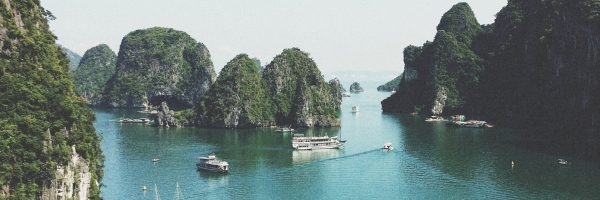
Global study trips are one of the most valuable opportunities available to MBAs. It can provide students with the chance to experience different business practices, learn from companies across the world, and better understand the global marketplace. It’s a beneficial learning environment for students in any industry and job function.
At the NYU Stern School of Business, the most recent Global Study Tour took a group of Executive MBA students to Ho Chi Minh City, Vietnam. During the trip, students met with representatives from a wide range of companies including Vina Capital, Grab, AstraZeneca, Siemens, Esquel Group, and more. Don’t worry; they also had plenty of time to sightseeing and eat the local food.
To learn more about this most recent Global Study Tour to Vietnam, we spoke with Anjou Martinez, an ’18 EMBA student, who was on the trip.
MetroMBA: What was the highlight of the trip for you?
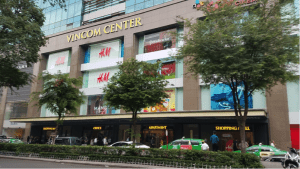
Vincom Center
Anjou Martinez: The best part of the trip for me was the Local Market Immersion, where each group was assigned a tour guide/interpreter and was given an itinerary to visit a variety of local places to observe the daily life in Ho Chi Minh. My group was tasked to visit Vincom Center, a high-end shopping mall equipped with residential and office space. At lunch, we sampled traditional Vietnamese cuisines such as Bun Bo Hue, a traditional Hue-style beef noodle soup, Xu Chicken Rice, a crispy chicken dish with ginger chili soy sauce and aromatic rice, and Sautéed Vermicelli Noodles with vegetables.
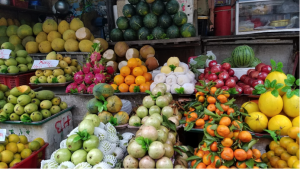
Ben Thanh Market
After lunch, we walked to the famous Ben Thanh Market, an indoor marketplace that sells local handicrafts, branded goods, and souvenirs at inexpensive prices. In this setting, prices are not fixed, so you have to haggle to find a bargain. We also visited Phuong Ha, a specialty grocery store for expats and more affluent locals. Most of the goods were manufactured from the U.S., Europe, and Australia.
On our way to our last stop, which was Maybank, we added a side trip to the Bitexco Financial Tower, which is the tallest skyscraper in Saigon. We ended our immersion at the bank, which was closed by the time we arrived—it closed at 3 p.m., which we thought was early compared to U.S. standards.
Metro: What company visit had the greatest impact on you and why?
AM: My favorite company visit was at Doan Potters, a private company in Binh Duong province which exports its pottery and home décor products to big companies such as Wal-Mart, Home Depot, Lowe’s, Crate & Barrel, and Pier 1 Imports. The management was very accommodating. They broke us into groups and assigned us an expert to tour their facilities and better understand their business from converting the raw materials into clay, designing, slip-casting, jiggering, hand-turning, glazing, carving, and firing. This experience showed me how small businesses in Vietnam can thrive, make an impact in their community, and profit globally.
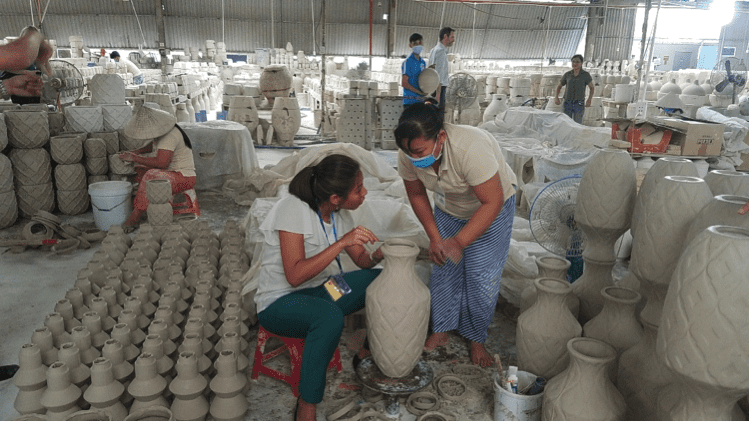
Doan Potters
Metro: Can you share one of your funniest situations or experiences in Vietnam?
AM: The most unique experience I had in Vietnam was after class, when several of us rode on the back of a scooter driven by our personal driver/guide to explore the bustling streets of Saigon while making food stops at local eateries. It was exhilarating to go with the traffic flow with no clear driving lanes and directions. We ate like the locals on low tables and low stools in a crouch position. We were on the streets with Back of the Bike Tours for most of the evening, and we ventured from District 1 to District 3 and 10. I thought it was the best way to live like a local for one night. My driver Phuong was very helpful in answering questions about her country and what it was like for her—as a recent a college graduate—to live in Saigon.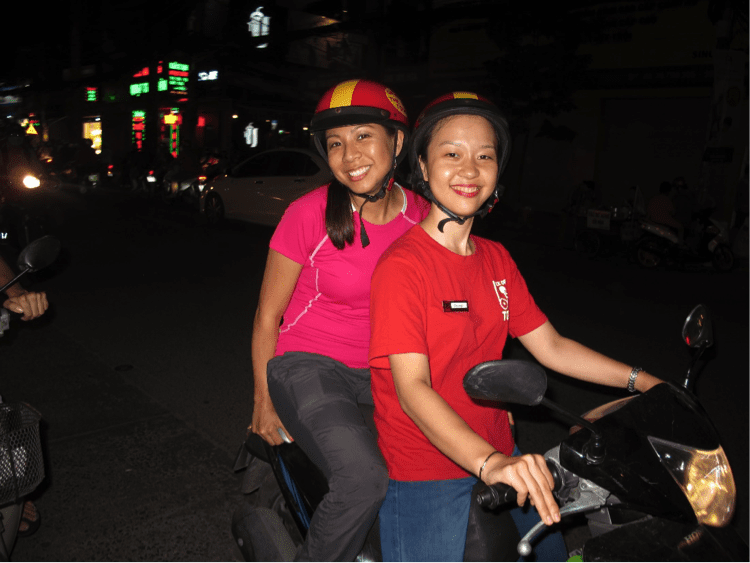
Metro: What surprised you the most about your trip?
AM: Coming into Vietnam, I thought they were a strict Communist country like China. However, I was surprised to find out that the government has done a lot of things to improve capitalism by encouraging privatization. Small- and mid-size businesses are indeed thriving in Saigon.
Metro: Why did you decide to go on the Global Study Tour to Vietnam?
AM: As part of the NYU Executive MBA program, we had an option to go to a global study tour (GST) in Vietnam or Greece. I thought a GST in Vietnam is more of an educational experience for me since I had lived in Southeast Asia when I was younger. I think Vietnam has its own charm and interesting history—so much so that I was inclined to travel more than 20 hours one-way to experience what it had to offer.
Metro: How did the trip enhance or change your view of international business?
AM: Seeing is believing. Aside from Doan Potters, we also visited Esquel Group, a global textile and apparel manufacturing company that boasts clients such as Nike, Ralph Lauren, and Tommy Hilfiger. We witnessed how shirts and pants were made from scratch from cutting, sewing, embroidery, silkscreen, laundering, and packaging. Now, when I go for a run and put on Nike apparel, I think of Esquel’s manufacturing facility and how the world is a smaller place. The East has really met the West. International business can flourish by establishing global partnerships that create win-win situations for both companies.
Metro: Why would you recommend that an MBA student travel abroad during their program?
AM: My global study tour was an eye-opening, educational experience that cannot be matched by lectures, course readings, or videos. Students must immerse themselves in the culture, language, customs and thus, business opportunities. The academic structure of the global study tour optimized the learning.
